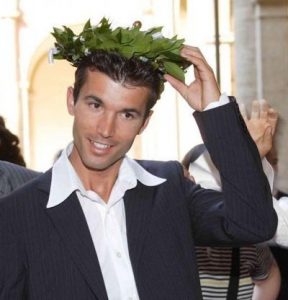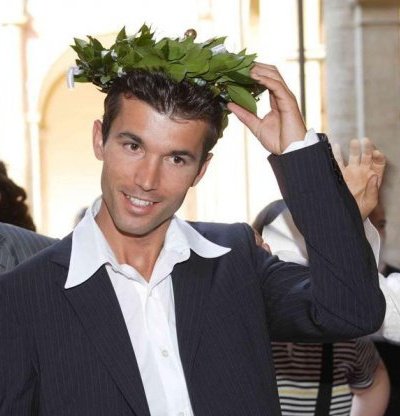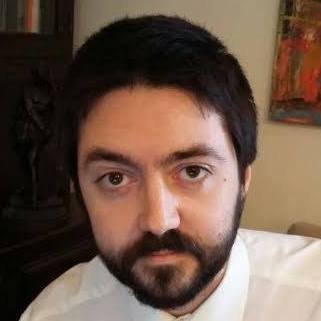 Davide Piffer is an evolutionary anthropologist. He obtained his BA in Anthropology from the University of Bologna and a Master of Science in Evolutionary Anthropology from Durham University. His Master’s thesis was on the sexual selection of sleep patterns among humans, and was the first to link mating behavior to chronotype within an evolutionary framework. His research effort later moved to quantitative genetics (i.e. twin studies), when he published one of the first accounts on the heritability of creative achievement. In 2013 he moved to molecular genetics, focusing on the polygenic evolution of educational abilities and intelligence and this is still his main focus. Within this research area, his main finding is that ethnic differences in intelligence are explained by thousands of genetic variants that predict cognitive abilities within populations. He has published a book of poems.
Davide Piffer is an evolutionary anthropologist. He obtained his BA in Anthropology from the University of Bologna and a Master of Science in Evolutionary Anthropology from Durham University. His Master’s thesis was on the sexual selection of sleep patterns among humans, and was the first to link mating behavior to chronotype within an evolutionary framework. His research effort later moved to quantitative genetics (i.e. twin studies), when he published one of the first accounts on the heritability of creative achievement. In 2013 he moved to molecular genetics, focusing on the polygenic evolution of educational abilities and intelligence and this is still his main focus. Within this research area, his main finding is that ethnic differences in intelligence are explained by thousands of genetic variants that predict cognitive abilities within populations. He has published a book of poems.
Grégoire Canlorbe: You have made a well-known attempt to provide a theoretical framework within which creativity—in science, philosophy, technology, music, mathematics, or literature—may be defined more precisely and measured. Could you present us your theory as it stands?
Davide Piffer: Creativity is not a single cognitive function or ability. Hence, it is not possible to measure creativity with paper and pencil or computer tests, unlike for example intelligence, or working memory. Creativity is the capacity to generate creative products, that is, scientific theories, poems, paintings, sculptures, inventions that are novel and useful or meaningful. Hence, the only way to measure a person’s creativity is via one’s creativity output (i.e. achievement) which is the sum of creative products over an individual’s (or society/ race) lifespan. A lot of cognitive abilities contribute to creativity, and in my seminal paper (Piffer, 2012), I argued that the widespread use by researchers of divergent thinking as the sole measure of creativity is a mistake. In fact, there are many cognitive and personality predictors of creative achievement besides divergent thinking, including IQ or general mental ability, working memory, openness to experience and non-clinical schizophrenic tendencies (i.e. “shizotypy” to use the psychiatrist’s jargon). Hypomania, or the tendency to feel positive emotions, has been linked to creativity, as well as bipolar disorder. All of these factors constitute what I call “cognitive potential”.
Divergent thinking (DT) is actually an important cognitive function which has been confined to creativity research. However it would benefit other areas of psychology as well. My opinion is that it would be better to regard DT as a form of intelligence, and to include divergent thinking measures in psychometric batteries and standardized intelligence tests (i.e. WAIS). Since psychometrically it is correlated to general cognitive ability but it taps into different neurological substrates, it would provide a more complete picture of one’s mental power, possibly less tied to academic intelligence and more to artistic or daily-life accomplishments.
[Read more…] about A conversation with Davide Piffer, for American Renaissance


 Richard Storey LL.M is a Catholic traditionalist, sometimes described as a medieval libertarian. His writing spans law, history, theology, and cultural criticism, and he is the author of The Uniqueness of Western Law: A Reactionary Manifesto. He lives in England with his wife and three children.
Richard Storey LL.M is a Catholic traditionalist, sometimes described as a medieval libertarian. His writing spans law, history, theology, and cultural criticism, and he is the author of The Uniqueness of Western Law: A Reactionary Manifesto. He lives in England with his wife and three children.